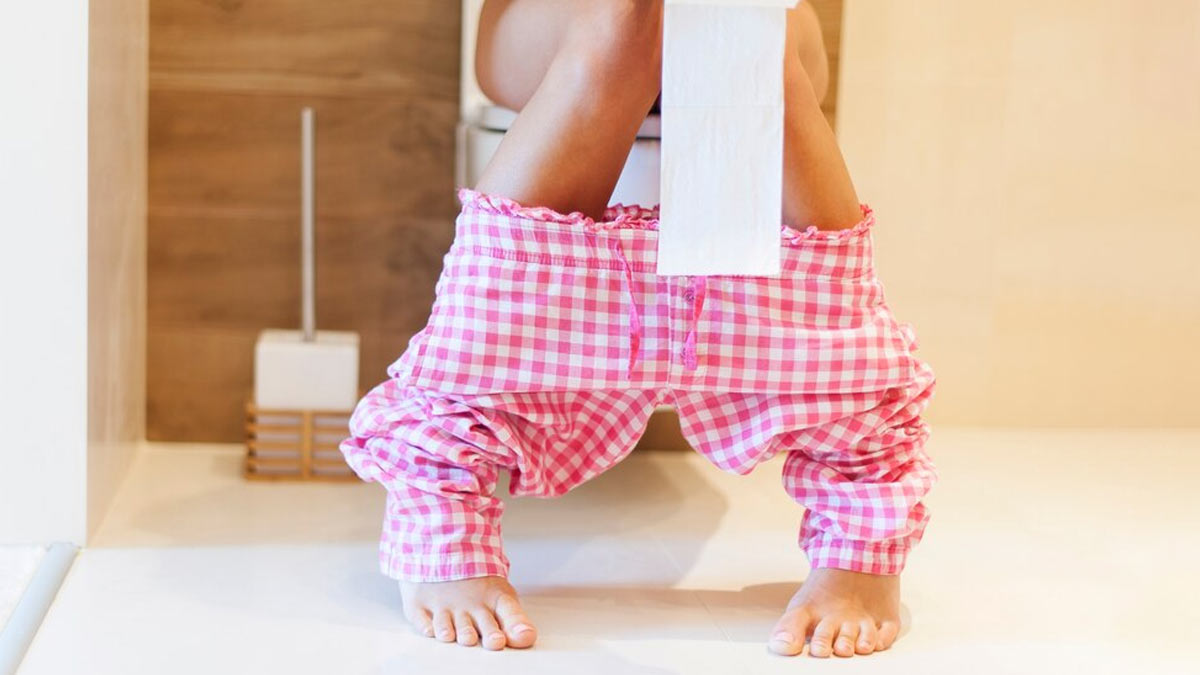
Haemorrhoids, commonly known as piles, are a painful condition that occurs in an estimated 4.4% of the population worldwide. According to Johns Hopkins Medicine, about 50% of people develop the condition by age 50. This is because several factors, including unhealthy dietary habits and pre-existing digestive problems, can contribute to the development and progression of haemorrhoids. In fact, sitting too long on the toilet can increase your risk, warned Dr Uddhavesh Paithankar, Consultant-Gastroenterologist, Manipal Hospital, Gurugram, in an interaction with the OnlyMyHealth team.
Table of Content:-
Also Read: 5 Effective Ways To Get Rid Of Constipation
Haemorrhoids Risk From Sitting On The Toilet For Long

Haemorrhoids occur when veins or blood vessels in and around the anal canal become swollen or inflamed.
Dr Paithankar said, "Sitting for prolonged periods of time and/or straining or pushing hard during bowel movement increases the pressure in these veins, and when done repeatedly, it results in haemorrhoids."
A study published in the Annali Italiani di Chirurgia found a strong correlation between prolonged toilet sitting and haemorrhoids. After analysing 52 non-obese patients with haemorrhoids, researchers found that the longer someone spent on the toilet, the more severe their haemorrhoids tended to be. This suggests that changing toilet habits, like avoiding sitting for long periods, could help treat as well as prevent the condition.
Other Risk Factors Of Haemorrhoids

Other factors that contribute to the risk of haemorrhoids include old age, chronic diarrhoea, or pelvic tumours.
In addition, pregnancy and childbirth are significant risk factors for haemorrhoids due to hormonal changes and increased intra-abdominal pressure, suggests a study published in the Official Publication of the College of Family Physicians of Canada, which added that an estimated 25–35% of pregnant women are affected by this condition.
Also Read: From Vegetables, Fruits To Grains: High-Fibre Foods To Treat Haemorrhoid
Preventive Measures

“One of the most important steps in treating haemorrhoids is avoiding constipation (hard or infrequent stools),” said Dr Paithankar, adding, “Hard stools can lead to rectal bleeding and/or a tear in the anus, called an anal fissure. In addition, pushing and straining to move your bowels can worsen existing haemorrhoids and increase the risk of developing new haemorrhoids.”
- To prevent the development of this painful condition, here are a few steps you can take:
- Eat lots of fruits, vegetables, and other foods with fibre
- Drink plenty of water and other fluids
- Limit fatty foods and alcohol
- Get regular physical activity
Conclusion
Haemorrhoids is a condition anyone can develop, although older people, pregnant women, and those with an unhealthy lifestyle are more at risk of the condition. The key is to avoid eating processed, fatty foods and load up on fibre-rich foods. Additionally, staying hydrated and getting regular exercise play a vital role in curbing the risk. If the problem persists, it is best to consult healthcare professionals. Treatment usually includes Over-The-Counter (OTC) creams and ointments, which can provide relief for symptoms like itching and swelling, while more severe cases may require medical procedures like rubber band ligation or surgical removal.
Also watch this video
How we keep this article up to date:
We work with experts and keep a close eye on the latest in health and wellness. Whenever there is a new research or helpful information, we update our articles with accurate and useful advice.
Current Version